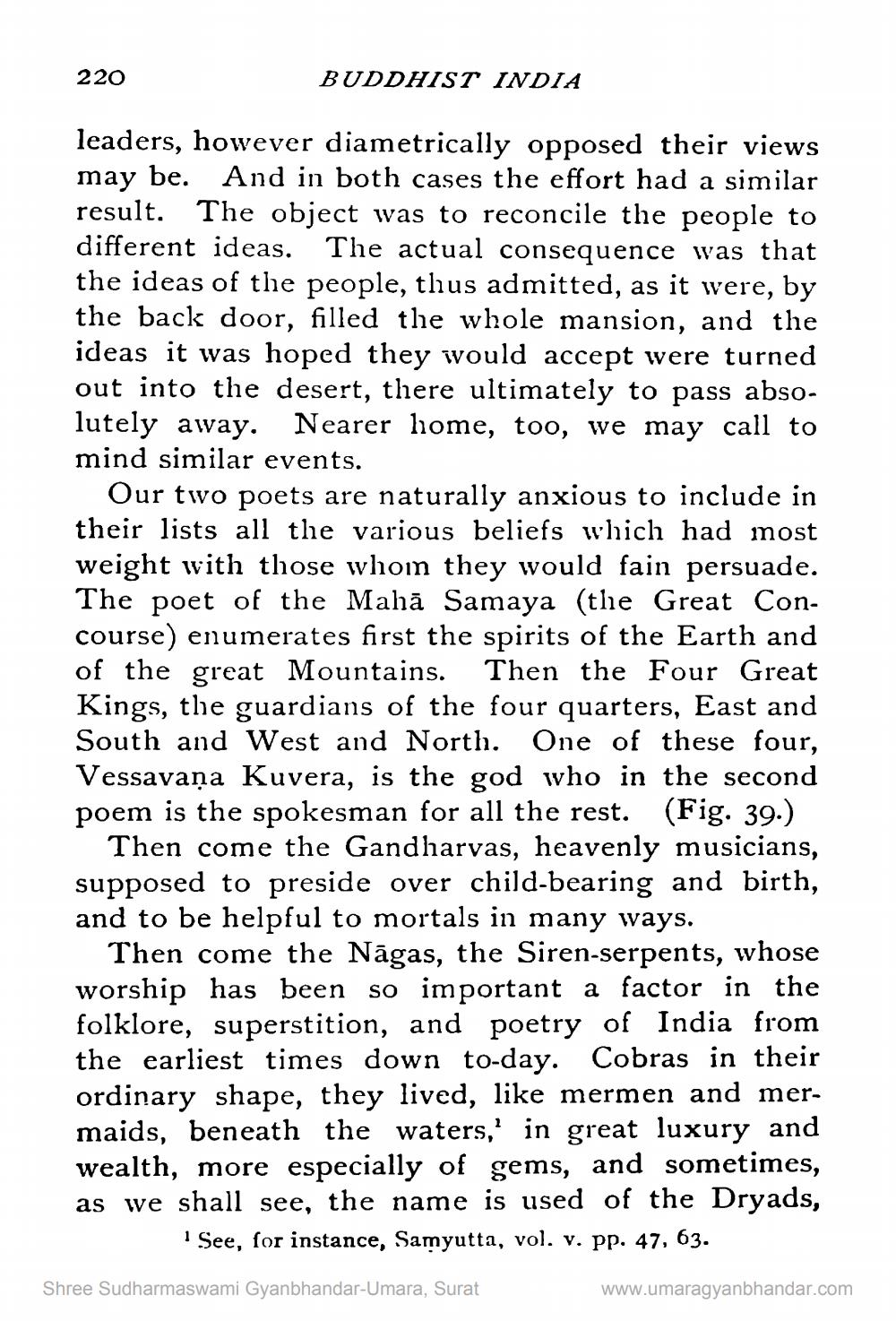________________
220
BUDDHIST INDIA
leaders, however diametrically opposed their views may be. And in both cases the effort had a similar result. The object was to reconcile the people to different ideas. The actual consequence was that the ideas of the people, thus admitted, as it were, by the back door, filled the whole mansion, and the ideas it was hoped they would accept were turned out into the desert, there ultimately to pass absolutely away. Nearer home, too, we may call to mind similar events.
Our two poets are naturally anxious to include in their lists all the various beliefs which had most weight with those whom they would fain persuade. The poet of the Mahā Samaya (the Great Concourse) enumerates first the spirits of the Earth and of the great Mountains. Then the Four Great Kings, the guardians of the four quarters, East and South and West and North. One of these four, Vessavaņa Kuvera, is the god who in the second poem is the spokesman for all the rest. (Fig. 39.)
Then come the Gandharvas, heavenly musicians, supposed to preside over child-bearing and birth, and to be helpful to mortals in many ways.
Then come the Nāgas, the Siren-serpents, whose worship has been so important a factor in the folklore, superstition, and poetry of India from the earliest times down to-day. Cobras in their ordinary shape, they lived, like mermen and mermaids, beneath the waters,' in great luxury and wealth, more especially of gems, and sometimes, as we shall see, the name is used of the Dryads,
See, for instance, Samyutta, vol. v. pp. 47, 63.
Shree Sudharmaswami Gyanbhandar-Umara, Surat
www.umaragyanbhandar.com




